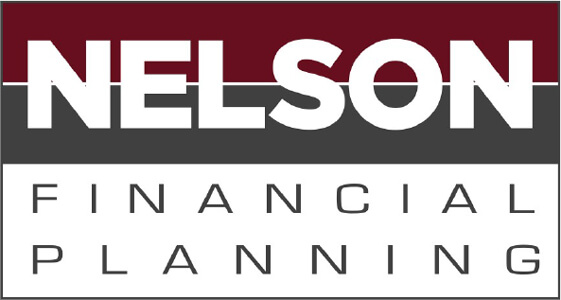What Is a 1031 Tax Exchange?
A 1031 Exchange is a method of deferring capital gains taxes on the sale of a rental property or other real estate investment. 1031s once also applied to valuables and personal property, but the Tax Cuts and Jobs Act of 2017 largely removed those sales as a possibility. These days, 1031 Tax Exchanges help real estate investors grow their portfolios and increase net worth faster and more effectively than would be possible if they had to pay capital gains taxes on every property sale.
What to Know about 1031 Exchanges
With a tax-deferred exchange, you take your gain proceeds from an investment property sale and reinvest the money into another like-kind property. “Like-kind” means the new property is similar to the previous one. In other words, you can’t sell a duplex on the beach and replace it with a warehouse downtown to qualify for a 1031 Exchange.
However, you can’t simply sell a property, sit on the cash for a while, and decide later to buy another property. Instead, you must engage a qualified intermediary. Also known as a 1031 agent, this professional’s role is similar to an escrow agent. The proceeds must go directly to the qualified intermediary rather than going to you. Then, when you identify the next property you want to buy, this agent handles the money and facilitates the purchase. Be aware that hiring an intermediary may cost you a couple thousand dollars, depending on the value of the transaction and what the specific agent charges.
You’ll also probably want to engage a Certified Public Accountant. Working with a CPA while doing a 1031 Exchange is wise because you must report the transaction on your tax return. The required calculations can be complex, and they must be done correctly to avoid the potential for heavy penalties.
3 Rules of 1031 Exchanges
The three general mechanics that apply when doing 1031 Exchanges include:
- The replacement property should be of equal or greater value to the one being sold. This rule has some leeway, but it’s best to adhere to it when possible.
- The replacement property must be identified within 45 days of the sale of your prior property. This is a pretty short window.
- The replacement property must be purchased within 180 days. You must close on the new property within six months of the previous sale to qualify for a 1031 Exchange.
Here’s a real-world example of how 1031s works:
Say I own a rental property worth $1 million that I paid $250,000 for when I bought it years ago. I have since paid off the mortgage and don’t owe anything on the property. Therefore, my hypothetical gain on this sale is $750,000. This puts me in the 20% capital gains bracket, but remember, as a rental property, there’s some depreciation capture in there as well.
In the end, the capital gains tax might come out to about $175,000. That’s a pretty big bill, so I decide to do a 1031 Exchange. First, I need to engage a qualified intermediary, and then I can move forward with the sale of my rental property. 100% of my gain—or $750,000—is excluded and goes directly to the intermediary while I look for a replacement property.
It doesn’t take long for me to find a property I want to buy worth $1.5 million. I purchase it within the required 180-day window, so I can defer all of my $750,000 gain and the $175,000 tax bill. The exchange “kicks the can down the road,” meaning it doesn’t make the tax bill go away, but it defers it until I sell this $1.5 million property (or I pass away and leave the tax bill to my heirs).
So, what happens if my exchange property is worth less than the prior one? For this example, let’s say I want to exchange my $1 million property for one worth $800,000. I have to recognize the capital gain on the differential, which is $200,000. This means I have to pay taxes on $200,000 of the $750,000 gain, and I can defer the remaining $550,000.
Top Dos and Don’ts for Your 2021 Tax Return
This is an interesting tax season, to say the least. If you haven’t filed your 2021 return yet, make sure you keep these dos and don’ts in mind:
- DO track down your COVID-19 stimulus checks.
- DO track down your Advance Child Tax Credit payments.
- DO total up your IRA contributions.
- DO total up your HSA contributions.
- DO claim your $300 (for single filers) or $600 (for married filers) charitable contributions.
- DON’T expect your refund anytime soon. Many forms have yet to be finalized, so the IRS may not be able to accept your taxes yet. On top of that, the IRS is still processing about 24 million returns from last year.
- DON’T try to call the IRS’s 800 number. If you need to get in touch, try contacting your local IRS office once it reopens.
- DON’T expect to see the COVID provisions from 2020 on your 2021 return. For example, unemployment payments are fully taxable again, and the health insurance premium tax credit repayment requirement is back in place.
- DON’T file your taxes unless you have all your tax documents.
- DON’T forget the deadline! It’s back to April 15. But since that date falls on Good Friday, the deadline is actually April 18, 2022.
If you still have questions about 1031 Exchanges or filing your 2021 tax return, get in touch with Nelson Financial Planning. We have CPAs and CFPs on staff to help you make a successful and cost-effective financial plan for the future. Contact us online or call our Winter Park, FL, office at 407-307-3061.
- 8 Wonders1
- Bank Investments3
- Beating Inflation1
- Budget for Retirement3
- Corporate Transparency Act2
- Digital Currency1
- Energy Tax Credits1
- ESG Funds1
- Featured Blog0
- Financial Planning9
- Financial Success3
- Importance of Dividends2
- Investment Portfolio4
- IRA1
- Joel Garris1
- Nelson Financial Planning3
- Net Worth Improvement1
- Next Gen Dollars and Sense1
- Pension Plans1
- Retirement “Secure” Act2
- Retirement Regrets4
- Social Security3
- Tax Liability3
- Tax Planning6
- Year-End Tax Changes3






